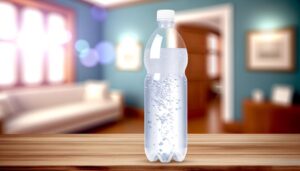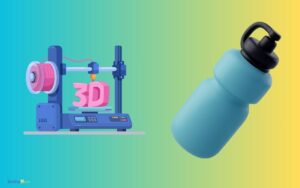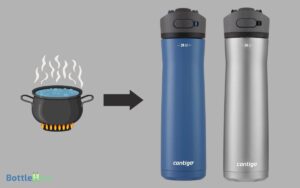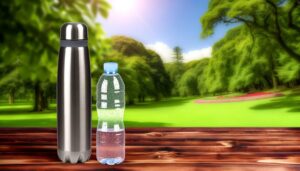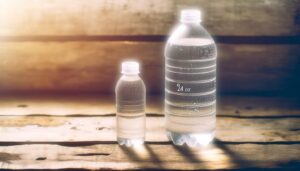Does a Hot Water Bottle Help Kidney Stone Pain? Yes!
Yes, a hot water bottle can help alleviate kidney stone pain. Heat therapy promotes vasodilation and muscle relaxation, which eases the discomfort caused by renal colic.
Applying heat can reduce muscle spasms and promote blood flow, thereby decreasing pain perception by activating thermoreceptors. Heat also inhibits pain signals to the brain and encourages endorphin release.
However, be cautious with temperature control to avoid burns and understand that this is a holistic solution.
For a thorough approach to kidney stone pain management and additional insights, there’s more to digest on this topic.
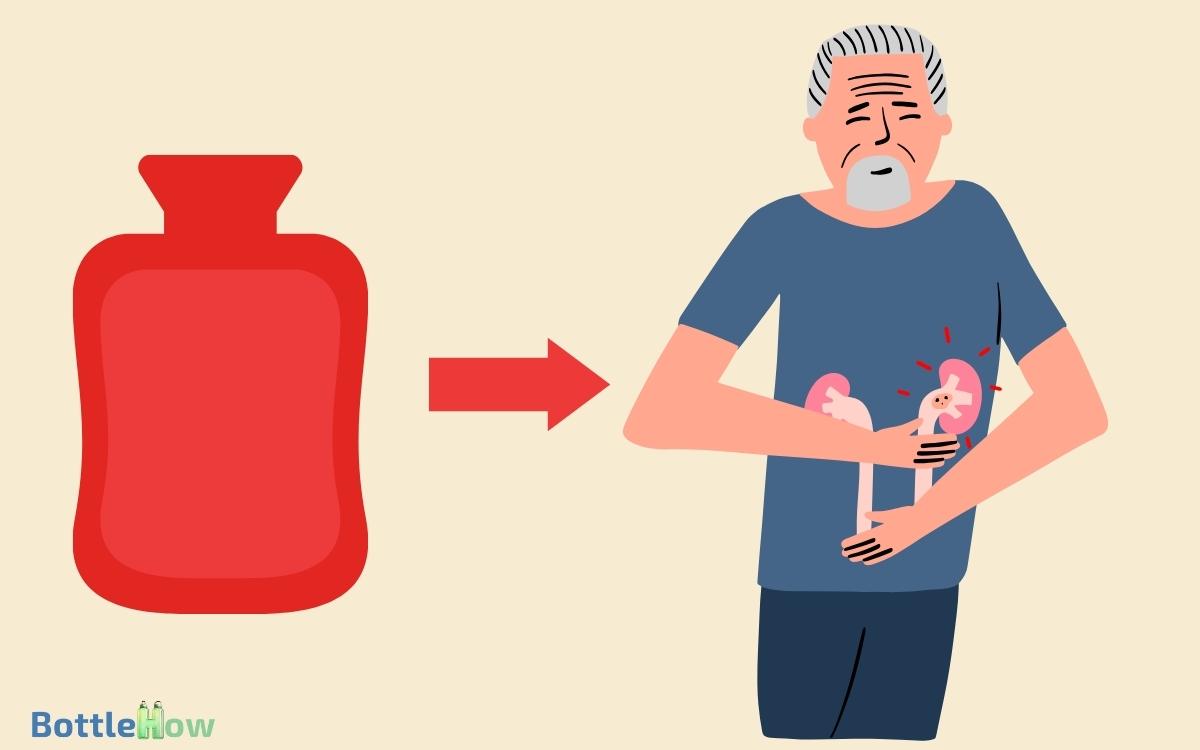
Key Takeaways
Understanding Kidney Stone Pain
Kidney stone pain, also known as renal colic, is a severe and often debilitating condition caused by the passage of stones through the urinary tract.
You’ll experience intense, crampy pain, typically starting in the flank and radiating to the groin or lower abdomen.
Renal colic arises when a stone obstructs the ureter, leading to increased intraluminal pressure and spasm of the smooth muscles.
Common symptoms include hematuria, nausea, and vomiting. Severe discomfort is often episodic, correlating with the stone’s movement.
Diagnostic imaging, like non-contrast CT scans, confirms the presence and location of the stones.
Effective management requires prompt pain control, often using NSAIDs or opioids, and ensuring adequate hydration to facilitate stone passage. Understanding this pain is vital for appropriate intervention.
The Science of Heat Therapy
When you apply heat therapy, it stimulates vasodilation, which increases blood flow and aids in pain relief.
This mechanism reduces muscle spasms and enhances tissue oxygenation, contributing to muscle relaxation.
Clinical evidence supports that these physiological changes can notably alleviate kidney stone pain.
Pain Relief Mechanisms
Applying heat therapy, such as a hot water bottle, to the lower back can alleviate kidney stone pain by promoting muscle relaxation and increasing blood flow to the affected area.
The heat activates thermoreceptors, which can override pain signals sent to the brain, providing a distraction from the discomfort.
Here are three mechanisms by which heat therapy can relieve kidney stone pain:
- Muscle Relaxation: Heat reduces muscle tension, thereby decreasing spasms in the ureter, which can exacerbate pain.
- Endorphin Release: Heat can stimulate the release of endorphins, the body’s natural painkillers, which contribute to reduced pain perception.
- Nerve Conduction: Heat can slow the transmission of pain signals to the brain by affecting nerve conduction velocity, leading to less intense pain sensations.
Understanding these mechanisms can guide effective pain management strategies.
Blood Flow Improvement
Heat therapy enhances blood flow by causing vasodilation, which increases the diameter of blood vessels and improves circulation to the affected area.
When you apply a hot water bottle to the region of kidney stone pain, the heat initiates this physiological response.
Enhanced blood flow can help deliver more oxygen and nutrients while removing metabolic waste products, potentially reducing inflammation and discomfort.
Clinical studies indicate that thermotherapy can be a supportive measure in managing renal colic by promoting local blood circulation.
This increased blood flow not only aids in alleviating pain but also supports the body’s efforts to heal and manage the condition.
Using a hot water bottle is a straightforward yet effective method to enhance this natural process.
Muscle Relaxation Benefits
Leveraging the principles of thermotherapy, heat application directly targets muscle relaxation by reducing muscle spasms and tension around the affected area.
When you apply a hot water bottle to your lower back or abdomen, the heat penetrates the skin and increases tissue elasticity, leading to improved muscle relaxation. This warmth also helps to dilate blood vessels, increasing blood flow to the affected area and promoting faster healing. Many people use a hot water bottle for gastritis relief, as the gentle heat can soothe abdominal discomfort and reduce cramping. Additionally, the calming effect of heat may help alleviate stress, which is often linked to digestive issues like gastritis.
Consider these key benefits:
- Inhibition of Pain Signals: Heat therapy can block pain signals to the brain, offering immediate relief.
- Enhanced Blood Circulation: Increased blood flow facilitates the removal of metabolic waste, which can exacerbate muscle tension.
- Reduction of Muscle Spasms: Heat decreases nerve sensitivity, which helps in alleviating involuntary muscle contractions.
These physiological mechanisms collectively contribute to reducing discomfort associated with kidney stone pain.
Benefits of Using Heat
You’ll find that heat application activates thermoreceptors, which can inhibit pain signals, providing immediate analgesic effects.
Additionally, heat promotes muscle relaxation by increasing blood flow, reducing spasms around the affected area.
These dual mechanisms make a hot water bottle an effective adjunct in managing kidney stone discomfort.
Pain Relief Mechanism
Applying a hot water bottle to the affected area can greatly alleviate kidney stone pain by promoting muscle relaxation and improving blood circulation.
The thermotherapy approach is effective due to several physiological mechanisms:
- Vasodilation: Heat application causes blood vessels to expand, enhancing blood flow to the area, which helps in reducing pain and improving oxygen supply.
- Nerve Signal Modulation: Heat can alter the transmission of pain signals to the brain, providing a soothing effect and lowering pain perception.
- Metabolic Enhancement: Increased temperature accelerates metabolic processes, aiding in the removal of metabolic waste products that can exacerbate pain.
These mechanisms collectively contribute to a significant reduction in the intensity of kidney stone pain, offering you a practical and evidence-based pain management strategy.
Muscle Relaxation Benefits
Heat therapy not only improves blood circulation but also provides significant muscle relaxation, which is particularly beneficial in managing kidney stone pain.
By applying a hot water bottle, you induce vasodilation, which enhances blood flow to the affected area.
This increased circulation helps to reduce muscle spasms, a common symptom associated with kidney stones.
The warmth also facilitates the relaxation of smooth muscles in the ureters, potentially aiding in the passage of the stone.
Clinical studies suggest that heat application can decrease pain intensity, offering a non-pharmacological adjunct to conventional pain management.
Utilizing a hot water bottle is a practical intervention that combines thermal effects with muscle relaxation to alleviate discomfort caused by kidney stones.
Limitations of Heat Therapy
While heat therapy can provide temporary relief, it’s important to recognize its limitations in addressing the underlying causes of kidney stone pain.
Heat application primarily targets superficial muscle relaxation and vasodilation, which can help reduce discomfort but doesn’t resolve the primary issue.
Consider the following limitations:
- All-encompassing Relief: Heat therapy offers short-term relief and doesn’t treat the kidney stones themselves.
- Potential Risks: Prolonged use can lead to burns or skin damage, particularly if the heat source is too hot.
- Limited Effectiveness: It may not alleviate severe pain associated with larger stones or complications like infection.
Understanding these limitations can help you make informed decisions about using heat therapy as part of a thorough pain management strategy.
Expert Opinions
Medical professionals acknowledge the limitations of heat therapy while also offering insights into its role and effectiveness within a broader pain management strategy for kidney stones.
Urologists often recommend holistic heat application, highlighting its ability to alleviate muscle spasms and provide temporary symptomatic relief.
However, they emphasize that heat therapy doesn’t address the underlying issue of stone passage.
Clinical studies suggest combining heat therapy with pharmacologic interventions, such as NSAIDs, enhances overall pain relief.
Nephrologists caution against relying solely on a hot water bottle, advocating for a well-rounded treatment approach that includes hydration, dietary modifications, and, if necessary, surgical interventions.
Patient Experiences
Many patients report that using a hot water bottle provides significant temporary relief from the intense pain associated with kidney stones. This method leverages localized heat therapy to alleviate discomfort.
Here are three key observations from patient experiences:
- Pain Reduction: The heat from the hot water bottle can relax muscles and reduce spasms, which often helps in diminishing the excruciating pain caused by kidney stones.
- Improved Circulation: Applying heat can enhance blood flow to the affected area, potentially aiding in the movement of the stone through the urinary tract.
- Non-Invasive Relief: Unlike pharmacological interventions, a hot water bottle provides a non-invasive and immediate source of comfort, minimizing dependency on pain medications.
These experiences highlight the practical benefits of this simple, yet effective, pain management technique.
Conclusion
To sum up, while a hot water bottle won’t dissolve kidney stones, it can ease the pain by relaxing muscles and improving blood flow. Heat therapy provides temporary relief, but it’s not a cure-all.
Always consult your healthcare provider for thorough treatment. Remember, don’t let the comforting warmth of a hot water bottle lull you into neglecting professional medical advice. Your health deserves a well-rounded approach for excellent care and recovery.

